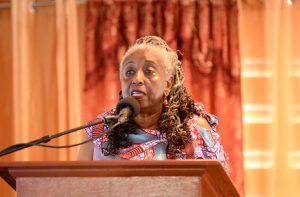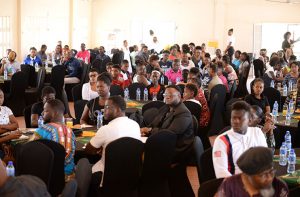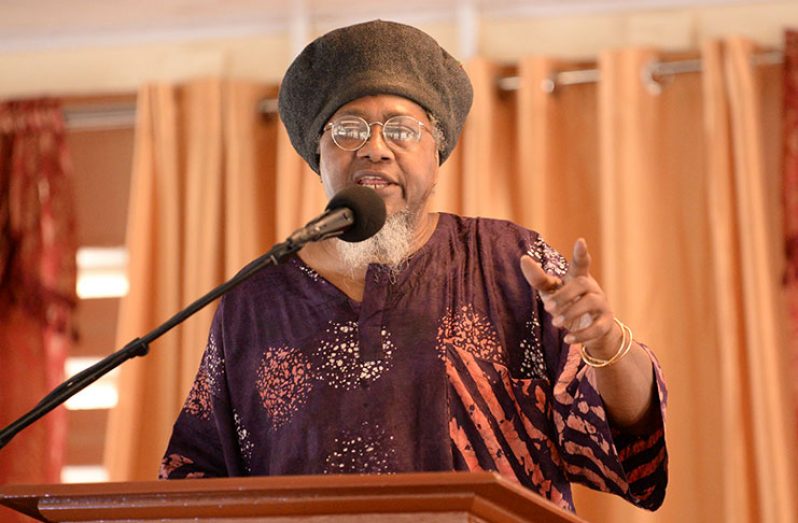— young Afro-Guyanese urged at youth conference
SCORES of local youths of African descent were urged to remember their history as the International Decade of People of African Descent Assembly–Guyana (IDPADA-G) held its first-ever youth conference.

The conference, hosted at the Guyana Industrial Training Centre (GITC), began on Saturday, February 9, and will conclude on Sunday, February, 10.
At this conference, dozens of young people will be engaged on topics surrounding their ancestry and heritage. Of particular importance, the conference will also focus on confronting the various challenges that persons of African descent face daily.
“We have been challenged and we have amazing resilience and the resilience is what has you here today,” IDPADA-G Chief Executive Officer, Olive Sampson, said at the opening ceremony on Saturday.
She highlighted that the IDPADA-G was birthed through the vision of President David Granger as part of the government’s commitment to the International Decade of People of African Descent, sanctioned by the United Nations (UN).
The theme of the International Decade is “People of African descent: recognition, justice and development,” and according to the UN: “In proclaiming this decade, the international community is recognising that people of African descent represent a distinct group, whose human rights must be promoted and protected.”
As part of the efforts to foster the development of the community, the CEO underscored that the youth present at the conference would be tasked with conceptualising the way forward, to achieve their “recognition, justice and development.”
“You help to plan the future of people of African descent in Guyana,” she said.
Chair of the IDPADA–G History Committee, Elizabeth Williams-Niles, highlighted that the idea for the conference came about after the organisation realised that there needed to be a forum for young people to learn their history.
“People of African descent need to know that they are someone – a force to be reckoned with,” she said.
The conference was crafted under the theme: “Engage, educate, liberate.”

In achieving the objective of first having young people know their history, African historian, Dr. Kimani Nehusi, presented on the importance of African history.
“If we don’t know our history and if we are unaware of our culture, then we are confused. And you enter onto the journey of life in a confused state,” he said and further contended: “You must be aware or aware enough of at least the outlines of your history.”
According to the historian, African people have been subjected to years of discrimination and prejudice that would have caused them to believe their culture is inferior.
“The destruction of Africa wasn’t only physical violence, it was intellectual violence also and many of us are very ignorant of who we are and these lies have been perpetuated through institutions we follow,” he emphasised.
He reminded that Africans belonged to a highly civilised society before being forcibly transported to other parts of the world. And even then, he highlighted that the Africans still managed to show their resilience by forming a “civilised alternative to plantation barbarism”- through which villages were established and the people began rebuilding their lives in the new spaces.
But Nehusi bemoaned that while knowing their history is critical to the process of their development, many young people do not see the importance of it.
“The worst kind of enslavement is mental enslavement,” he said, and encouraged the young people to find ways to advocate for specific programmes that would foster mental liberation.



.jpg)








